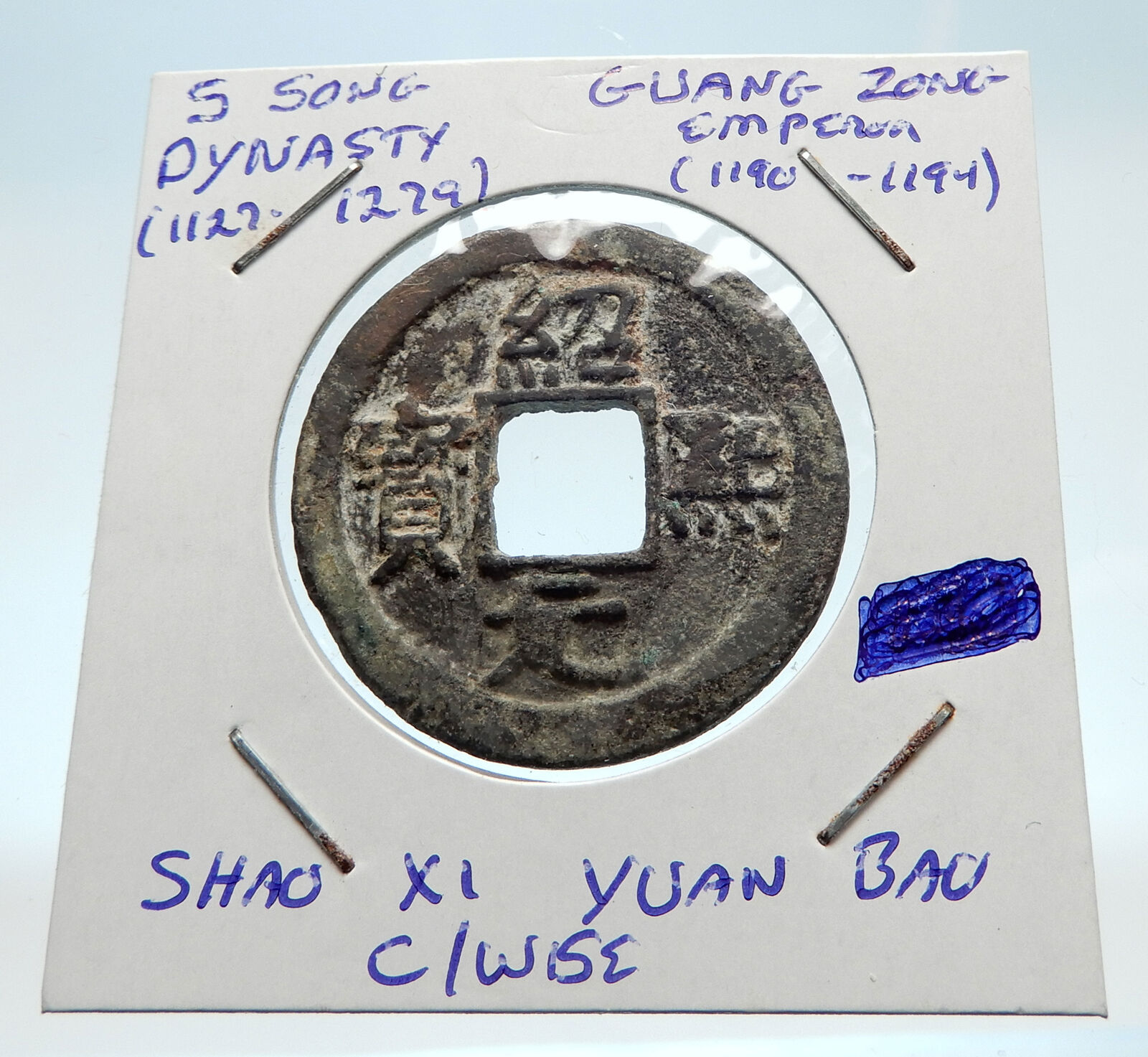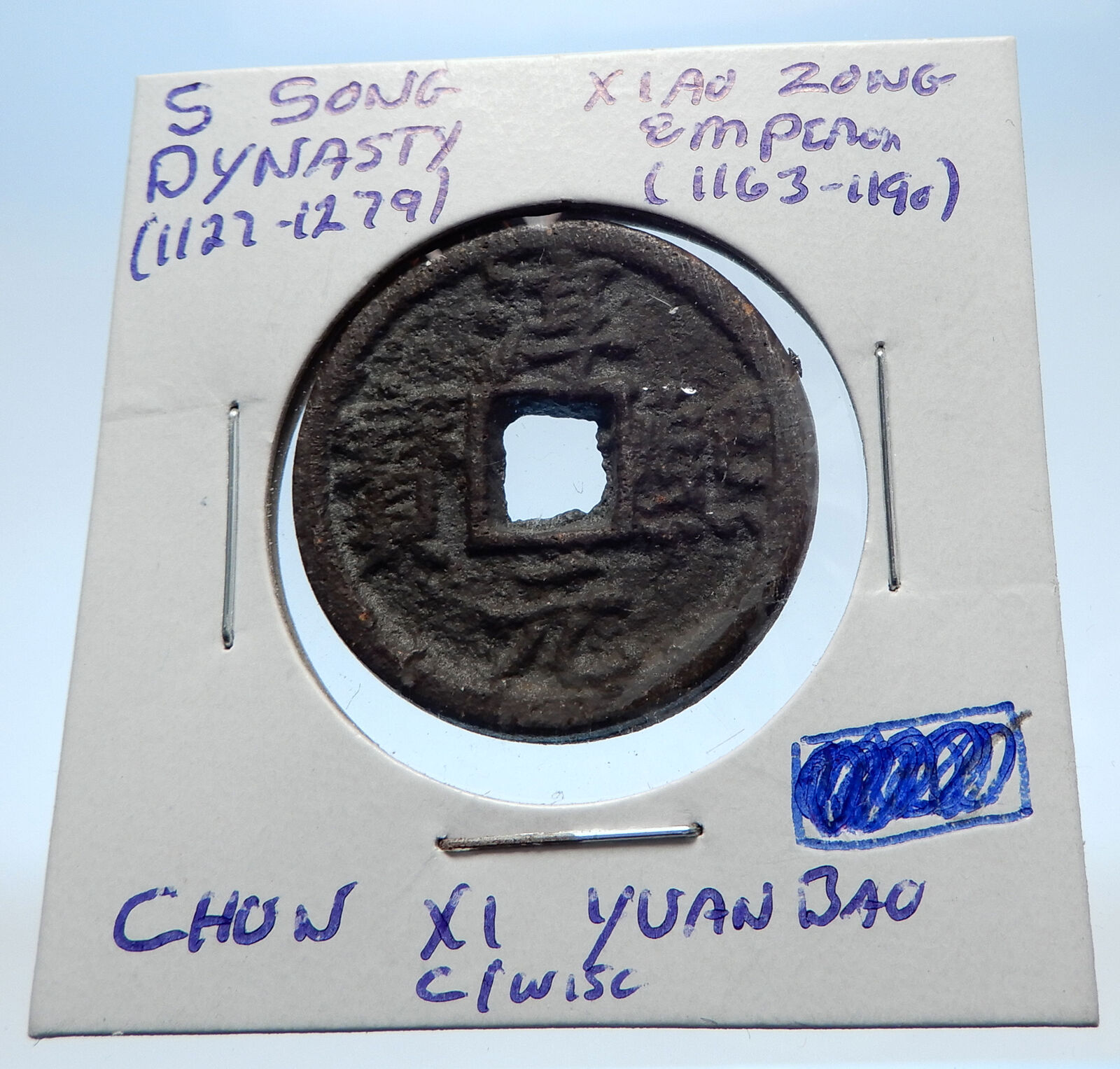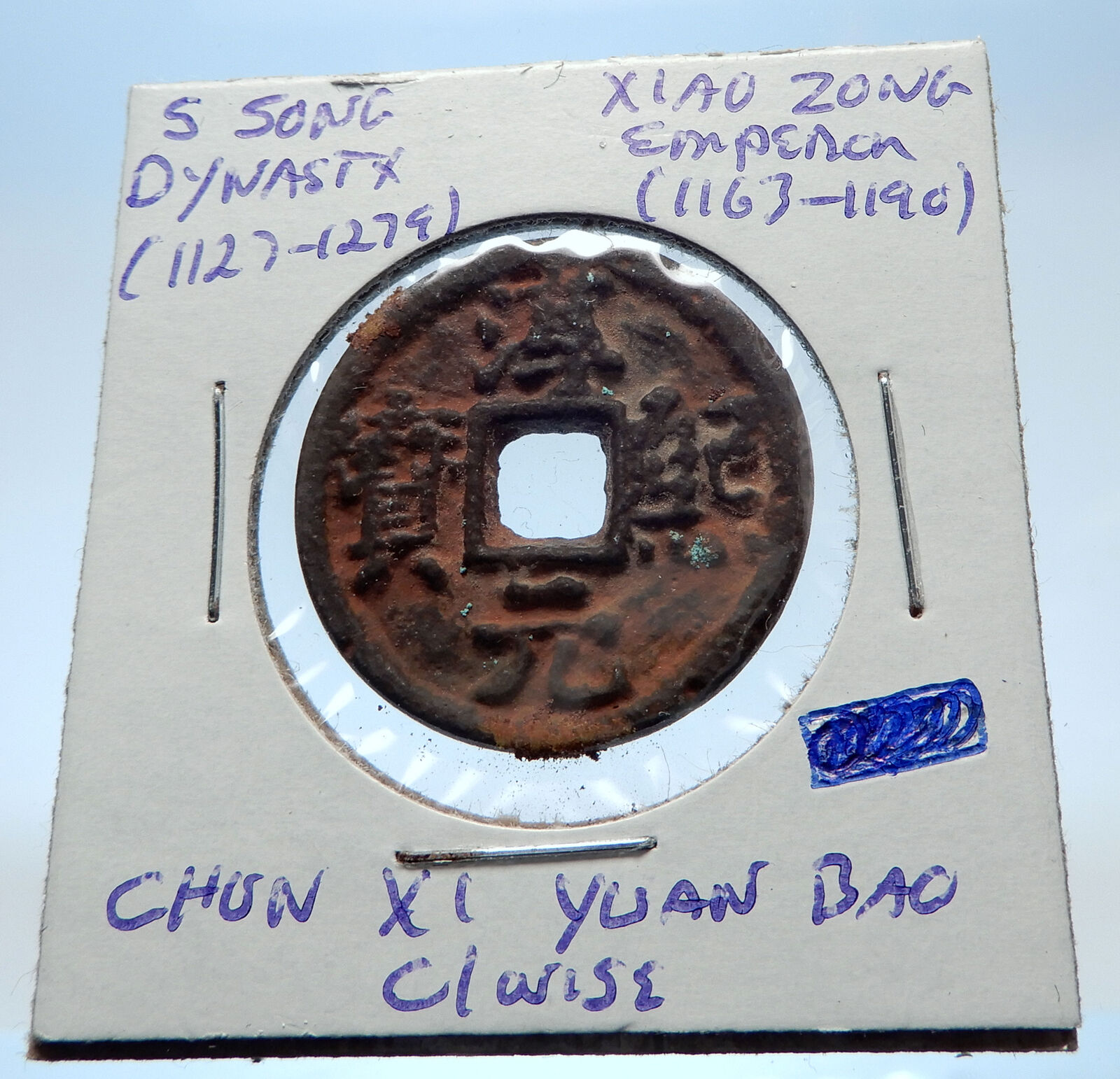|
China –
North and South Dynasties – Liang Dynasty (502-557 AD)
Emperor Wu: 502-549
AD
Bronze Wu Zhu
Cash Token 21mm, Struck
502-549 AD
Reference: H# 10.18
Chinese Symbols.
You are bidding on the exact item pictured, provided with a Certificate of Authenticity and Lifetime Guarantee of Authenticity.
 Emperor Wu of Liang (梁武帝) (464–549), personal name Xiao Yan (蕭衍), courtesy name Shuda (叔達), nickname Lian’er (練兒), was the founding emperor of the Liang Dynasty of Chinese Northern and southern dynasties era. His reign, until its end, was one of the most stable and prosperous during the Southern Dynasties. He came from the same Xiao clan of Lanling (兰陵萧氏) that ruled Southern Qi, but from a different branch. Emperor Wu of Liang (梁武帝) (464–549), personal name Xiao Yan (蕭衍), courtesy name Shuda (叔達), nickname Lian’er (練兒), was the founding emperor of the Liang Dynasty of Chinese Northern and southern dynasties era. His reign, until its end, was one of the most stable and prosperous during the Southern Dynasties. He came from the same Xiao clan of Lanling (兰陵萧氏) that ruled Southern Qi, but from a different branch.
Emperor Wu created universities and extending the Confucian civil service exams, demanding that sons of nobles (士族) study. He was well read himself and wrote poetry and patronized the arts. Although for governmental affairs he was Confucian in values, he embraced Buddhism as well. He himself was attracted to many Indian traditions. He banned the sacrifice of animals and was against execution. It was said that he received the Buddhist precepts during his reign, earning him the nickname The Bodhisattva Emperor. The Emperor is the namesake of the Emperor Liang Jeweled Repentance (梁皇寳懺), a widely read and major Buddhist text in China and Korea.
At the end of his reign, his overly lenient attitude on his clan’s and officials’ corruption and lack of dedication to the state came at a heavy price; when the general Hou Jing rebelled (侯景之乱), few came to his aid, and Hou captured the imperial capital Jiankang, holding Emperor Wu and his successor Emperor Jianwen under close control and plunging the entire Liang state into anarchy. After Emperor Wu was imprisoned, he was thirsty and asked Hou for honey, but Hou refused to give it to him. After shouting several times, the Emperor supposedly died of hunger and thirst.
Cash was a type of coin of China and East Asia, used from the 4th century BC until the 20th century AD. Originally cast during the Warring States period, these coins continued to be used for the entirety of Imperial China as well as under Mongol, and Manchu rule. The last Chinese cash coins were cast in the first year of the Republic of China. Generally most cash coins were made from copper or bronze alloys, with iron, lead, and zinc coins occasionally used less often throughout Chinese history. Rare silver and gold cash coins were also produced. During most of their production, cash coins were cast but, during the late Qing dynasty, machine-struck cash coins began to be made. As the cash coins produced over Chinese history were similar, thousand year old cash coins produced during the Northern Song dynasty continued to circulate as valid currency well into the early twentieth century.
In the modern era, these coins are considered to be Chinese “good luck coins”; they are hung on strings and round the necks of children, or over the beds of sick people. They hold a place in various superstitions, as well as Traditional Chinese medicine, and Feng shui. Currencies based on the Chinese cash coins include the Japanese mon, Korean mun, Ryukyuan mon, and Vietnamese văn.
|





 Emperor Wu of Liang (梁武帝) (464–549), personal name Xiao Yan (蕭衍), courtesy name Shuda (叔達), nickname Lian’er (練兒), was the founding emperor of the Liang Dynasty of Chinese Northern and southern dynasties era. His reign, until its end, was one of the most stable and prosperous during the Southern Dynasties. He came from the same Xiao clan of Lanling (兰陵萧氏) that ruled Southern Qi, but from a different branch.
Emperor Wu of Liang (梁武帝) (464–549), personal name Xiao Yan (蕭衍), courtesy name Shuda (叔達), nickname Lian’er (練兒), was the founding emperor of the Liang Dynasty of Chinese Northern and southern dynasties era. His reign, until its end, was one of the most stable and prosperous during the Southern Dynasties. He came from the same Xiao clan of Lanling (兰陵萧氏) that ruled Southern Qi, but from a different branch.




